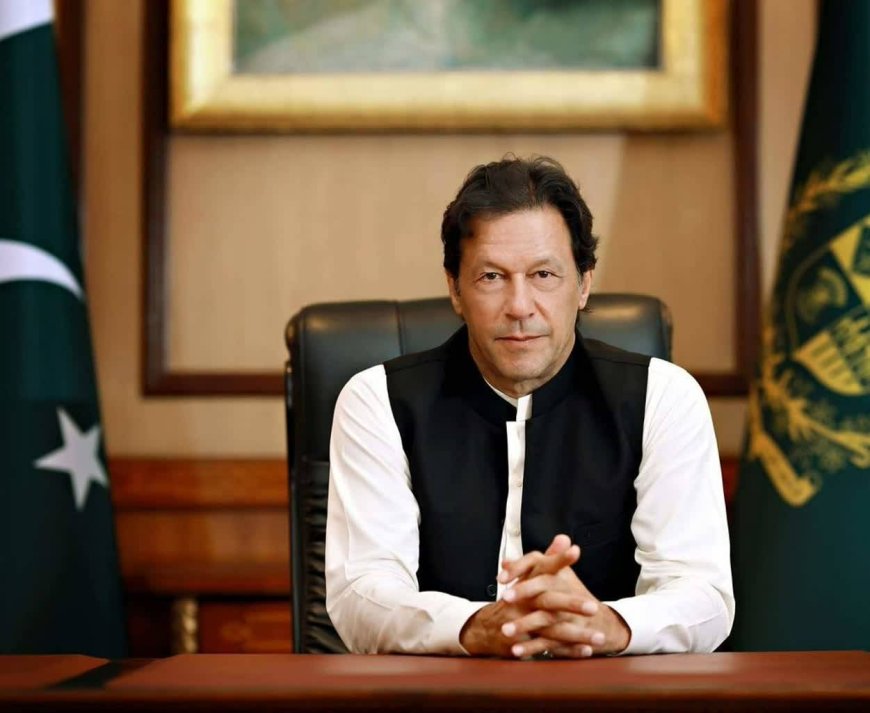Imran Khan's Phoenix Moment:Supreme Court's Move Reshapes Pakistan's Politics

In a watershed moment for Pakistan's tumultuous political landscape, the Supreme Court has fortified the position of Imran Khan's Tehreek-e-Insaf (PTI) party by awarding it 24 additional parliamentary seats.
This decision has dramatically shifted the balance of power, transforming the ruling coalition led by Prime Minister Shahbaz Sharif into a minority and elevating PTI to the status of the largest party in the National Assembly. This judicial intervention not only underscores the judiciary's role in shaping Pakistan's political fate but also heralds a potential resurgence of Imran Khan, amidst an environment fraught with uncertainty and external pressures.
The Supreme Court's Landmark Decision
The Supreme Court's ruling, which followed a meticulous three-month review of PTI's petition, grants the party 20 quota seats for women and four for minorities. These seats, previously invalidated by the Peshawar High Court and the Election Commission, were reinstated, thereby restoring PTI's majority status in the parliament. This legal victory is a testament to the party's resilience and the judiciary's pivotal role in upholding democratic principles. This judicial pronouncement has significantly destabilized the ruling coalition. By stripping the coalition of its two-thirds majority, the Supreme Court has exacerbated the fragility of Shahbaz Sharif's government, which already suffers from a lack of popular support. The Information Minister, Attaullah Tarar, has indicated that the government is contemplating a ban on PTI, citing allegations of illegal foreign funding, financial misconduct, and incitement of rebellion against military establishments. This move, perceived as an act of desperation, could further inflame the political crisis and deepen societal divisions.
Imran Khan's Legal Battles and Political Fortunes
Imran Khan, who was Prime Minister from 2017 until his ousting in April 2021 following a conflict with the Pakistani military, has been a central figure in the nation's political discourse. Since his removal, Khan has faced a litany of charges ranging from financial corruption to security violations. Despite numerous acquittals, he remains imprisoned, with new charges continually emerging. The Supreme Court's latest decision could be a turning point, potentially restoring his political clout if he can navigate the persistent legal and political obstacles.
Potential Ban on PTI: Historical and Future Implications
The government's contemplation of a PTI ban draws parallels with previous attempts to suppress opposition, such as the 2021 ban on Tehreek-e-Labaik Pakistan (TLP). The TLP ban, intended to curb the party's influence, backfired, leading to mass protests and the eventual lifting of the ban. Analysts predict a similar outcome if PTI is banned. Such a move would likely incite widespread unrest, further destabilizing an already volatile political environment. The head of Pakistan's Human Rights Commission, Asad Iqbal Bhatt, has cautioned that suppressing PTI would only exacerbate polarization, chaos, and violence.
Broader Political and Social Context
The political instability in Pakistan is not a new phenomenon but has been exacerbated by recent events. The country's powerful military, often seen as a behind-the-scenes influencer, has been accused of manipulating elections and undermining democratic processes. The Supreme Court's decision to reallocate seats to PTI is seen by many as a corrective measure to restore balance and uphold democratic integrity. However, the government's potential response, including the proposed ban on PTI, could undermine these efforts and lead to further disenfranchisement of the electorate.
Conclusion: A Nation at a Crossroads?
Pakistan stands at a critical juncture. The Supreme Court's decision has provided a lifeline to Imran Khan and his PTI party, challenging the current government's hold on power. As the political drama unfolds, the resilience of Pakistan's democratic institutions and the will of its people will be severely tested. The coming months will be crucial in determining whether Pakistan can navigate this crisis and emerge with a strengthened commitment to democratic principles, or whether it will succumb to further instability and conflict. The international community will undoubtedly watch closely, as the outcomes will have far-reaching implications for regional stability and democratic governance.












































